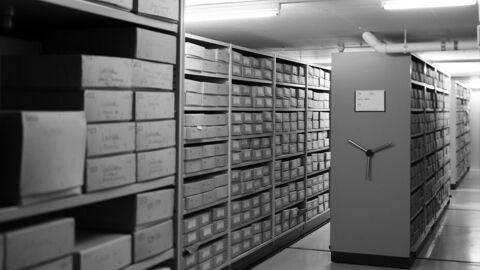Who decides today what we are going to remember tomorrow? One answer to the question is UNESCO with its Memory of the World (MoW) program. In 1992, UNESCO began entering selected outstanding documents into its “World Register”. Gradually, a global digital network now comprising 427 documents from around the world was created as a modern form of global memory. With the honorable inclusion in the MoW register, the respective preserving association commits itself to ensuring both an appropriate form of preservation and public access, i.e. global digital access.

Preservation
The International Memory of the World Register
It is a sign of wisdom to appreciate our cultural heritage, to safeguard it as a treasure left to us by our ancestors, and to consider it our duty to pass this heritage intact to our children.
Since its foundation in 1999, the German Nomination Committee has successfully proposed 24 documents for inclusion in the MoW program. In June of 2016, this body proposed the records of the first Frankfurt Auschwitz Trial for the MoW Register. On October 30, 2017, UNESCO recognized these records as part of the world’s documentary heritage.
The case files of the Office of Public Prosecutions at the Regional Court of Frankfurt am Main comprises 456 volumes with more than 50,000 individual pages and 103 tapes as a 424-hour recording from the main proceedings.
The outstanding significance of the case file kept by the Frankfurt am Main Office of Public Prosecutions lies in the prosecution of the crimes committed by the perpetrators of the Holocaust on the one hand. On the other, both the files and the tapes are immensely important in how society in the Federal Republic of Germany has come to terms with the genocide committed by the Nazis down into the present. In addition to the aspects related to the meaning of criminal justice and a national commemorative culture, the tape recordings of the statements made by 319 witnesses, including 181 Auschwitz survivors, literally provide eloquent testimony regarding one of the central crimes of the 20th century. Of global significance in terms of commemorative policy is the ultimately universal message associated with the inclusion of this document in the MoW register: Appraising and remembering dictatorships and their crimes will reinforce human rights in peaceful and tolerant societies.